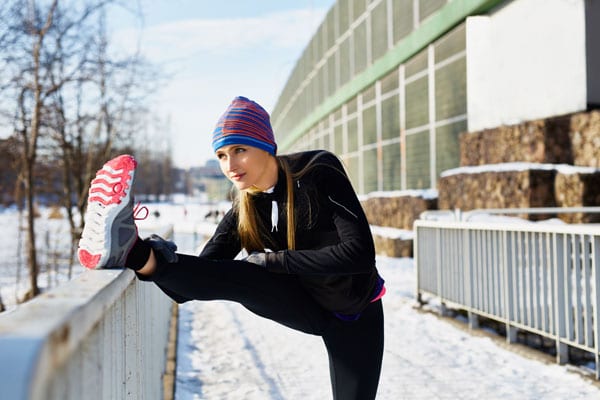
A Few Guidelines for Exercising in the Cold
Is it more difficult for the body to recover in the colder weather? Are exercises and exertions surprisingly more trying even though we are not sweating? For those who would rather wait until cooler temperatures to work on their workout, be aware of some of the issues that may arise even though we may not recognize them as easily as in the hotter months.
Dehydration is Still a Risk!
Taking a run in the brisk morning or even afternoon of winter may seem like a good way to avoid working up too much of a sweat and still feel refreshed after your adventure. Drier air though can cause as much dehydration and loss of bodily fluids as the boiling summer sun. Even if you choose not to wear much more than sweatpants, and a long sleeved shirt to take your run, be sure to drink plenty of liquids. You may not be peeling off soaking sweaty socks after a good hike, but you are still working hard. In the drier air we may not feel the sweat wicking away, and as our bodies work to retain heat we are not sweating to stay cool, but water is being used to be sure. If drinking cool water seems unappetizing after a chilly outing, try keeping water just above room temperature.
Dress Appropriately
When we go out for a run or a brisk hike we may still be thinking of how warm that will cause us to be. But that euphoria of inner warmth can be deceiving. In very cold climates frostbite is a very real concern. While the blood is pumping hard through the body we may fail to realize how numb ears, nose, fingers and toes have become. Layers of gloves and thicker socks will protect fragile digits. A good pair of earmuffs, a snug hat or a thick knit headband can save ears from turning pink and having painful cold damage. Keeping ears and throat covered can also guard against respiratory and sinus issues.
Don’t Over Do It
When we are not sweating up a storm we can feel as though our bodies are not really working. In the cold though, joints can be stiffer than in warmer weather, and the heart and respiratory system can be working twice as hard. Stretching and indoor warm up exercises can be doubly important during cold weather months to prevent sprains, and injuries. Keep in mind that the heart and lungs are under more stress in cold weather and while your muscles and mind may be feeling wide awake without the sluggishness of overheating, cardiac stress is a major issue in winter exertion.
No matter the time or the season, working our bodies is beneficial, but always be aware of the signs your body is giving you and see a doctor if anything seems out of the ordinary.















